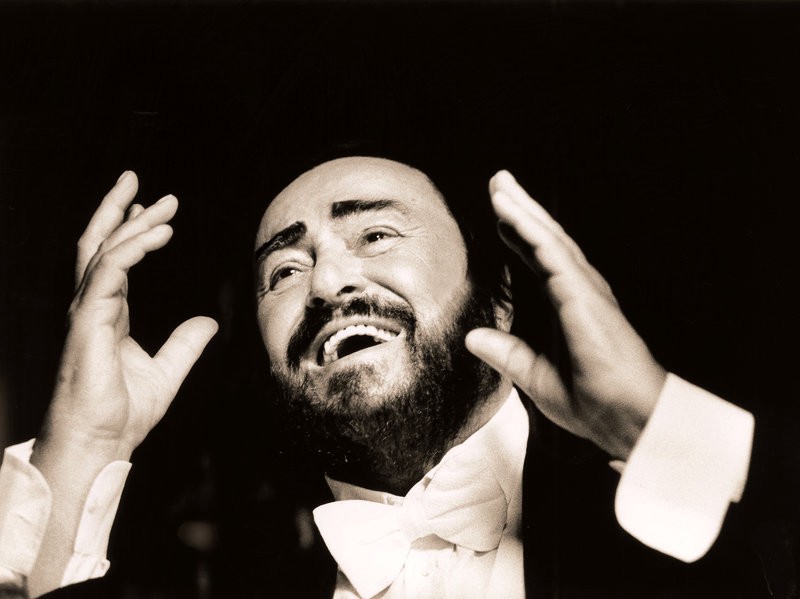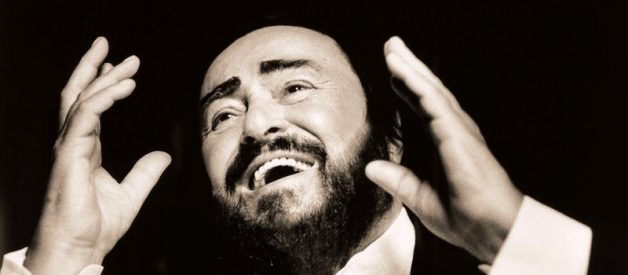Have you ever wondered what the lyrics to this Italian aria mean?
The Italian aria Nessum dorma is from the opera Turandot by Giacomo Puccini. You might already know that the title means ?None shall sleep?, but what about the rest of the lyrics?
Nowadays, however, it is probably most associated with Pavarotti after he sang it at the 1990 FIFA World Cup in Italy.
Let?s have a look at the lyrics, and then see how much new Italian vocabulary we can learn from them:
Nessun dorma! Nessun dorma!Tu pure, o Principessa,nella tua fredda stanza,guardi le stelleche tremano d?amore, e di speranza!
Ma il mio mistero chiuso in me;il nome mio nessun sapr!No, No! Sulla tua bocca,lo dir quando la luce splender!
Ed il mio bacio scioglieril silenzio che ti fa mia!
Il nome suo nessun sapr,E noi dovrem, ahim, morir, morir!
Dilegua, o notte!Tramontate, stelle!Tramontate, stelle!All?alba, vincer!Vincer! Vincer!
In the opera, this song is sung by Prince Calaf, who wanted to marry Princess Turandot. The princess?s father sets three riddles, and if anybody solves them, the princess will marry them. Calaf solves the three riddles but the princess doesn?t want to marry him. Calaf says if the princess can guess him name by the next morning, then she can kill him, but if not, she must marry him.
The princess then sets out on a mission to find out Calaf?s name, and she declares that none of her subjects can sleep until they find out his name, and if they don?t discover his name, she will kill them all. Calaf then starts singing, ?Nessun dorma?, which means ?Nobody shall sleep.?
The word ?nessun? means ?nobody? and ?dorma? comes from the verb ?dormire? meaning ?to sleep?. ?Dorma? is actually the imperative, or command form of the verb. So, it?s showing how the princess is giving a command saying that nobody is allowed to sleep. It?s actually Calaf singing and mocking what the princess is saying:
Nessun dorma! Nessun dorma! Tu pure, o Principessa, nella tua fredda stanza. Guardi le stelle che tremano d?amore, e di speranza!
Nobody shall sleep! Nobody shall sleep! Even you, oh Princess, in your cold room. Look at the stars that tremble with love, and with hope
guardare ? to look attremare di ? to tremble with
Ma il mio mistero chiuso in me; il nome mio nessun sapr! No, No! Sulla tua bocca, lo dir quando la luce splender!
But my secret is shut away inside me; my name nobody will know! No, no! On your mouth, I will say it when the light glistens!
chiuso / chiudere ? closed / to closesapere ? to knowdire ? to say / to tellsplendere ? to shine / to glisten
Ed il mio bacio scioglier il silenzio che ti fa mia!
And my kiss will dissolve the silence that makes you mine!
sciogliere ? to dissolve / to melt
Then, in the distance, you can hear people singing this next line:
Il nome suo nessun sapr, e noi dovrem, ahim, morir, morir!
His name nobody will know, and we will have to, alas, die, die!
?dovrem? is short for ?dovremo?, which is the future tense of the verb ?dovere?. And ?morir? is simply a shortened version of ?morire?
dovere ? to have tomorire ? to die
Then Calaf starts singing again, knowing that he is going to win:
Dilegua, o notte! Tramontate, stelle! Tramontate, stelle! All?alba, vincer! Vincer! Vincer!
Vanish, oh night! Fade, stars! Fade, stars! At dawn, I will win! I will win! I will win!
dileguare ? to disappear / to vanishtramontare ? to fadel?alba ? the dawnvincere ? to win
For more articles on how to learn a foreign language, click here: https://www.3minute.club/blog
Just on a side note, here is a very different but very good version of this song, sung by Aretha Franklin. She filled in for Pavarotti once at the Grammys when he was ill and couldn?t sing:



